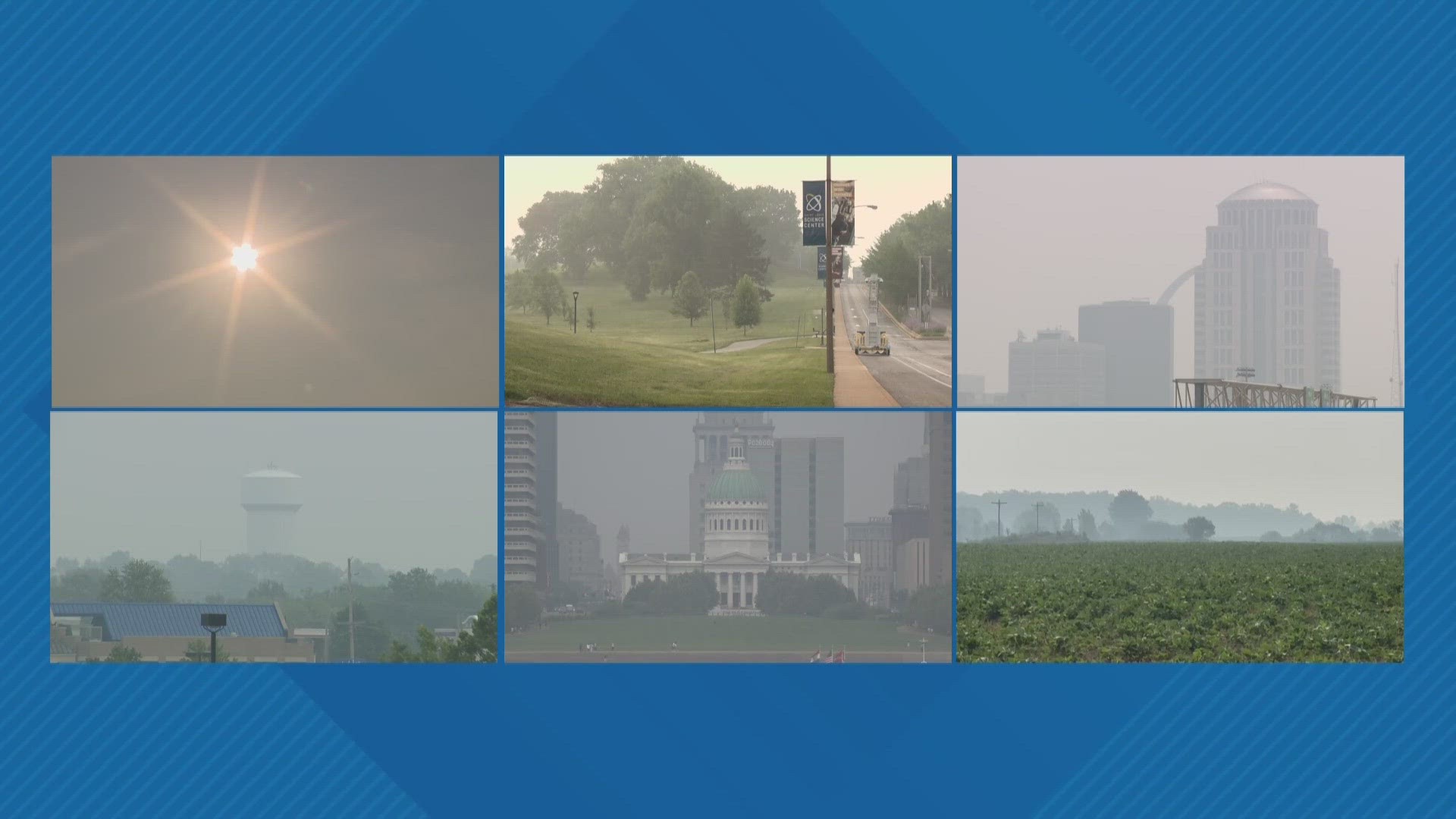ST. LOUIS — The poor air quality outside has sent many people across the area scrambling for solutions to keep themselves safe.
For most of the day, the Air Quality Index in the St. Louis area was hovering around 178.
That's the equivalent of smoking more than 5 cigarettes in 24 hours.
For more than a week, 10-year-olds Frances Kacura and Vinnie Lamartina have been planning a lemonade stand to pay for a trip to see Taylor Swift, but when they got up Wednesday morning they were greeted by something they’ve never seen before.
“I thought it was just fog,” said Frances Kacura.
“My parents told me it’s the Canadian wildfires,” said Vinnie Lamartina.
“We went out this morning and we could feel it instantly,” said Melissa Frawley. “I was like ok if we’re going to continue to do lemonade stand, we’re going to have to wear masks.”
It’s a small precaution that Frawley is taking to protect Frances, who is asthmatic.
“We have our inhalers and we’re ready just in case she needs them,” Frawley said.
“Anytime you have bad air quality, whether it’s wildfires or other reasons, this can trigger asthma attacks,” said Chris Martinez. “Folks with COPD, or allergies, this can bring new triggers into their lives that can exacerbate the situation.”
As Executive Director of the Asthma and Allergy Foundation of America, it’s Chris Martinez's job to monitor the air quality so he can alert at-risk groups.
“We love to see it in Green, and we can deal with it in yellow, but this morning St. Louis was in the red,” Martinez said.
He says wearing a mask can help, but there’s a catch.
“If you use an N95 mask certainly it can control some of the particles in the air,” Martinez said. “It won’t do anything for the gases. We don’t want folks to wear a mask and have a false sense of confidence and think I can go about my day in a normal fashion because that’s not necessarily true.”
Martinez says the best way to protect yourself is to limit exposure to the outdoors.
“Just like an ice storm,” Martinez said. “If you don’t have to go outside, don’t.”
“It’s hard,” Frawley said. “We want to be outside for the summer going to the park and the swimming pool, but you just can’t sustain it out here like this.”
“Poor air quality affects all of us,” Martinez said.

